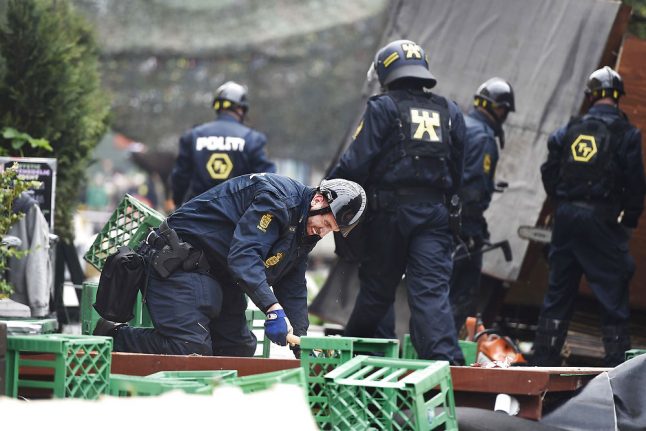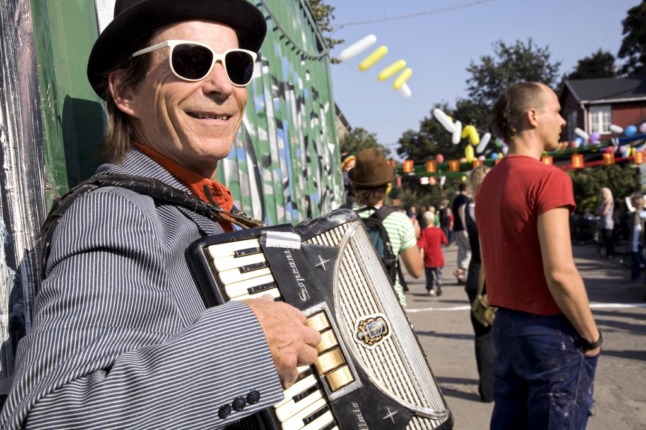Police were criticised for being overly forceful after the images emerged of the incident on May 31st last year.
The clash has now resulted in a 51-year-old woman receiving a prison sentence of up to two years.
Up to 100 people in the alternative enclave, which is regularly the target of police operations against illicit trading of cannabis, attacked police by throwing stones during the raid. Six police officers were hit.
In the video, which was subsequently posted online, a police officer is seen forcefully shoving an unarmed woman in the chest, causing her to fall backwards and hit her head on the ground.
Media TVflux, which was at Copenhagen District Court on Friday, initially reported that the woman from the incident had been convicted of a crime, and police later confirmed the conviction, Ritzau writes.
She was arrested the day after the raid, when Copenhagen Police superintendent Allan Nyring said that she had thrown a large stone at police shortly before the moment captured in the video, and threw another stone after she was pushed over.
She was unable to give an explanation for the incident in court, Ritzau reported.
“I can’t remember it. I had drunk vodka, Bailey’s, Gold Tuborg, and had smoked hash,” she is reported to have said at preliminary hearing.
In addition to stone throwing, she was charged with eight other infringements including threatening police. She was convicted of all charges.
The woman’s defence lawyer, André Rouvillain, called the sentence a “harsh verdict”.
“We don’t think relevant consideration was given to the quite serious attack by police to which my client was subjected. That should have been a mitigating circumstance. We have asked for time to consider a possible appeal, Rouvillain told Politiken.
She has 14 days in which to decide whether to appeal.
An investigation of the incident by the Independent Police Complaints Authority is yet to be concluded.
READ ALSO: Police officers return to Christiania after violent scenes



 Please whitelist us to continue reading.
Please whitelist us to continue reading.